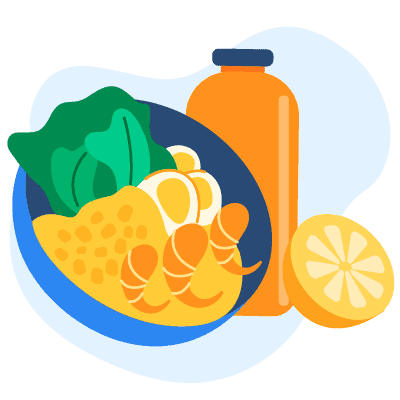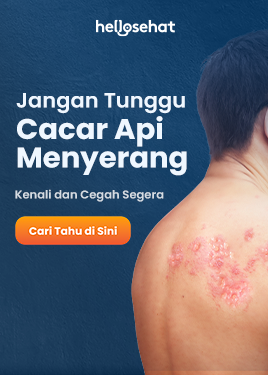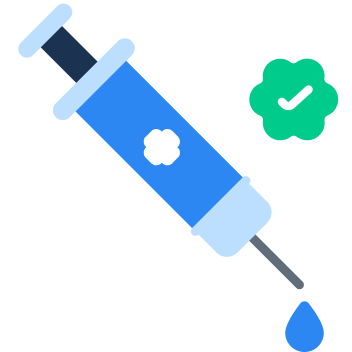Setelah melakukan deteksi kanker ovarium dan didiagnosis mengalami kondisi tersebut, kanker ovarium (indung telur) stadium 1, 2, dan 3 bisa disembuhkan dengan operasi pengangkatan sel kanker, kemoterapi, maupun radioterapi. Tidak hanya itu, ilmuwan juga meneliti potensi bahan alami dalam mengobati kanker, termasuk kanker ovarium. Lantas, obat herbal apa saja yang menunjukkan potensi sebagai obat kanker ovarium?

Obat herbal yang berpotensi mengobati kanker ovarium
Penyakit kanker masuk dalam daftar penyakit yang dapat menyebabkan kematian jika tidak diobati.
Termasuk kanker ovarium, yang menyerang kelenjar penghasil hormon seks dan sel telur pada wanita.
Umumnya, penyakit ini diobati dengan operasi dan dikombinasikan pengobatan kanker ovarium lain berupa terapi.
Selain mengikuti pengobatan dokter, ada beberapa ekstrak, rempah, maupun suplemen yang menurut studi punya potensi dalam melawan kanker ovarium, di antaranya:
1. Teh hijau dan teh hitam

Teh masuk dalam obat herbal untuk kanker ovarium. Tidak semua, hanya beberapa jenis teh yang diteliti potensinya pada kanker indung telur, seperti teh hitam (black tea) dan teh hijau (green tea).
Sebelumnya, teh dikenal sebagai salah satu jenis makanan membantu mencegah kanker ovarium.
Berdasarkan National Cancer Institute, teh hijau dan teh hitam memiliki aktivita antioksidan yang kuat karena kandungan polifenol, theaflavin, dan thearubigin.
Senyawa aktif tersebut dapat mengurangi radikal bebas sehingga melindungi sel dari kerusakan, menghambat proliferasi sel tumor, dan menginduksi apoptosis sel.
Proliferasi adalah kemampuan sel dalam memperbanyak diri sedangkan apoptosis adalah kematian sel secara terprogram.
Dalam penelitian berbasis hewan, katekin dalam teh terbukti menghambat penyebaran sel tumor.
Selain itu, enzim detoksifikasi, seperti glutathione S-transferase dan quinone reductase membantu meningkatkan sistem imun dalam melawan tumor.
Potensi teh hijau sebagai obat tradisional untuk kanker ovarium jenis tumor epitel juga terangkum dalam studi yang dipublikasikan pada Gynecologic Oncology.
Studi berbasis hewan ini menyimpulkan bahwa teh hijau terbukti menurunkan regulasi protein yang terlibat dalam peradangan dan meningkatkan potensi obat cisplatin dalam kemoterapi.
Meski begitu, periset masih melakukan pengamatan lebih lanjut untuk melihat efektivitas teh sebagai obat herbal untuk kanker ovarium untuk manusia.
2. Jahe

Jahe cukup populer sebagai obat tradisional. Bahkan, disebut-sebut bisa dijadikan obat tradisional untuk penyakit kanker ovarium.
Sebuah studi yang diterbitkan pada Advanced pharmaceutical bulletin, mengamati efek ekstrak jahe pada SKOV-3. SKOV-3 adalah garis sel kanker ovarium yang ada pada wanita Kaukasia dengan cystadenocarcinoma serosa ovarium.
Sel SKOV-3 diinkubasi bersama ekstrak jahe selama 72 jam dan uji toksisitas sel dilakukan. Hasilnya, ada efek sitotoksisitas dari ekstrak jahe pada sel SKOV-3 lewat jalur p53 yang bisa membuat sel tersebut mati.
Meskipun begitu, periset masih butuh pengamatan lebih dalam lagi mengenai potensi jahe sebagai obat herbal untuk kanker ovarium pada manusia.
3. Suplemen vitamin D dan kalsium

Kekurangan vitamin D menjadi salah satu faktor penyebab meningkatnya risiko kanker ovarium. Oleh karena itulah, ilmuwan mengamati efek vitamin D pada pasien kanker ovarium. Salah satunya, studi yang diterbitkan pada Journal of Ovarian Research.
Hasilnya, menunjukkan bahwa 1,25 (OH)2D3 atau calcitriol, merupakan bentuk aktif dari vitamin D yang didistribusikan di hati dan ginjal, dapat meningkatkan kemanjuran sifat antitumor pada obat kemoterapi, seperti cisplatin, carboplatin, docetaxel atau paclitaxel.
Sumber utama vitamin D memang berasal dari sinar matahari dan sebagian kecil ada pada makanan, seperti susu yang difortifikasi. Bisa juga dipenuhi lewat suplemen vitamin D.
Uji coba yang dilakukan secara terkontrol menunjukkan bahwa pemberian vitamin D dan kalsium pada wanita setelah menopause dapat mengurangi kejadian kanker dibandingkan dengan vitamin D saja.
Saat ini periset sedang mendalami pengamatan lebih mengenai potensi suplemen vitamin D yang mungkin bisa meningkatkan efektif pengobatan kanker.
Tips sebelum pakai obat herbal kanker ovarium
Meskipun menunjukkan potensi pada kanker ovarium, obat-obatan herbal di atas tidak boleh Anda gunakan tanpa pengawasan dokter. Apalagi dikonsumsi secara berlebihan dengan dalih mendapatkan manfaatnya lebih banyak.
Perlu Anda ketahui bahwa penggunaan obat tradisional bersamaan dengan perawatan dokter kemungkinan bisa membuat pengobatan jadi tidak efektif. Bahkan, menimbulkan efek samping lain yang merugikan dan membahayakan tubuh.
Pasalnya, kandungan obat herbal dapat berinteraksi dengan obat-obatan yang diresepkan dokter. Jadi, sebelum menggunakan obat-obatan tersebut, konsultasi lebih dahulu dengan dokter onkologi yang menangani kondisi Anda.
[embed-health-tool-bmi]























